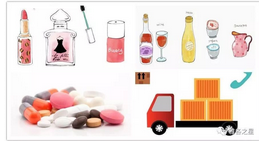By Laili Ismail – New Straits Times
THERE is more to the halal industry than what meets the eye despite the religious code it represents.
The stamp of approval has helped guide Muslims in making the right choices in their daily lives and benefits others, who are in no particular order, compelled to adhere to the convention.
Malaysia has 13 halal standards, which not only certify food items as well as food premises, but also cosmetics, personal care, pharmaceuticals and logistics.
This, when compared with many countries in the region — particularly those with sizeable Muslim populations — further cements the country’s trailblazing position in the global halal industry.
Halal Industry Development Corporation (HDC) chief executive officer Datuk Seri Jamil Bidin said most countries had only begun or have yet to go beyond the food industry.
Apart from the food and pharmaceutical industry, among others, Jamal said Malaysian halal industry players had also been actively producing halal vaccines, nutraceutical products (dietary supplements and medicinal food ingredients) as well as devices that are used during medical operations.
Datuk Seri Jamil Bidin:
“These sectors have seen various new products and developments.
“As for the nutraceutical sector, there are emerging big companies such as the Chemical Company of Malaysia which produces halal supplements.
“In the services area, the industry is focusing on halal logistics and healthcare and we have KPJ Healthcare Bhd, for example, which has been providing halal treatment options to patients,” he told the New Sunday Times.
Malaysia is the only country in the world where the halal industry development agenda is backed by the government, which translates into the existence of a unique ecosystem that allows a synergy between the private and public sectors.
“In this ecosystem, we have the private players focusing on production, manufacturing and services, while the public agencies, like HDC and the Malaysian Islamic Development Department (Jakim), facilitate and coordinate the industry’s progress by providing certification and training.
“You don’t see this kind of collaboration anywhere else in the world.
“In most countries, private players would dominate their halal industries,” he said.
Jakim Halal Hub director Datuk Dr Sirajuddin Suhaimee said Malaysia had been producing halal pharmaceuticals (HPs) since 2014 as under halal certification, the seven schemes included food, logistics, manufacturing, cosmetics, slaughterhouses, consumer goods (suchas toiletries) and pharmaceuticals.
“For each scheme, there is a specialist team overseeing the certification process and they will collaborate with industries.
“For cosmetics, we collaborate with the Cosmetic, Toiletries and Fragrance Association while for manufacturing, we have the Federation of Malaysian Manufacturers.
“We work closely to support and complement each other.
“For instance, when they face issues on pharmaceutical products, we will work together to solve the issues, especially how to produce HPs,” he said.
Sirajuddin added that the hub also had a committee that consisted of experts and researchers from higher learning institutions, that looked at all the issues and problems faced by industries in fulfilling the requirements of Malaysian halal standards.
Another committee, he said, will be formed to come up with a first-of-its-kind pharmacopeia (an encyclopedia on HPs), which is expected to be out by 2020.
“The pharmacopoeia will not only be a reference for industry players who are interested in producing HPs but a guide for consumers to make better-informed purchasing decisions.”
The aggressive efforts by halal industry players, including HDC, augur well for the country’s economic growth, bringing healthy returns and creating employment opportunities, Jamil said.
“Before HDC was established 10 years ago, everybody was talking about certification but that alone did not bring returns to
the economy as it was just a process.
“Years after HDC was formed, we are able to see real returns for our economy, which come from sales and exports of products, job creation as well as investments,” he said.
According to Jamil, the halal industry contributes over seven per cent to the nation’s gross domestic product.
It has also exported RM42 billion worth of halal products, attracted RM12 billion in investments and generated almost 250,000 jobs so far.
Despite the existing comprehensive standards, he said the country’s halal certification system had room for improvement to retain its leading position in the global halal industry.
“Our system does not only look at the Islamic or syariah requirements but also the hygiene and safety aspects which have been part and parcel of our standards for a long time.
“Moving forward, however, the standards should also take into account environmental issues, adopt fair trade practices and ward off child labour, to be on a par with European standards.
“This is because, in the concept of halal toyyiban (permissible for consumption), the word ‘toyyiban’ means good things, so it also means good for the environment and the different segments of society,” he said.

马来西亚:“清真”不仅与食物有关
Laili Ismail –新海峡时报
清真产业除了显而易见的宗教代码外,有更多的意义。
清真授权标志帮助穆斯林在他们的日常生活中做出正确的选择,并有利于别人,他们没有别的秩序,被迫遵守公约。
马来西亚有13个清真标准,不仅用于认证食物及食物业处所,也用于化妆品、个人护理、药品和物流。
与这个地区的许多国家相比,提别是那些拥有大量穆斯林人口的国家,进一步巩固了这个国家在全球清真产业中的开创性地位。
清真产业发展公司(HDC)首席执行官Datuk Seri Jamil Bidin说,大多数国家才刚刚开始,或尚未走出食品行业。
除了食品和制药行业,Jamal说,马来西亚清真产业的参与者也一直在积极生产清真疫苗、保健品(膳食补充剂和药用食品配料),以及在医疗手术中使用的设备。
Datuk Seri Jamil Bidin:
“这些行业已经见识到了各种新产品和新发展。
“至于营养食品行业,有一些新兴的大公司,比如马来西亚化学公司,生产清真补充剂。
“在服务领域,这个行业关注的是清真物流和医疗保健,例如我们有KPJ医疗有限公司,它一直在为病人提供清真治疗方案。”他告诉新《星期日泰晤士报》的记者。
马来西亚是世界上唯一一个清真产业发展议程得到政府支持的国家,这就意味着一个独特的生态系统的存在,允许私人和公共部门之间的协同作用。
“在这个生态系统中,我们有私人参与者专注于生产、制造和服务,同时,公共机构,如HDC和马来西亚伊斯兰发展部门(JAKIM)通过提供认证和培训来促进和协调该行业的进展。
“你在世界上的其它地方看不到这种合作。
“在大多数国家,私营企业将主导他们的清真产业。”他说。
JAKIM清真中心主任Datuk Sirajuddin Suhaimee说,自2014年以来,马来西亚一直在根据清真认证生产清真药品(HPs),这七个方案包括食品、物流、制造、化妆品、屠宰场、消费品(诸如化妆品)和药品。
“对于每个方案,都有一个专门的团队负责监督认证过程,他们将与各个行业进行合作。
“对于化妆品,我们与化妆品、化妆品和香水协会合作,而在制造方面,我们有马来西亚制造商联合会。
“我们紧密合作、相互支持、相互补充。
“例如,当他们面对药物产品的问题时,我们将共同努力来解决这些问题,特别是如何生产HPs。”他说。
Sirajuddin还说,该中心还拥有一个来自高等教育机构的专家和研究人员组成的委员会,研究了行业在满足马来西亚清真标准要求方面所遇到的所有争议和问题。
他说,另一个委员会,将提出一个首开先河的药典(HPs百科全书),预计将在2020年出版。
“药典不仅是对生产HPs感兴趣的行业参与者的参考,也是消费者做出更明智的购买决定的指南。”
包括HDC在内的清真产业参与者的积极努力,预示着这个国家的经济增长,带来了健康的回报、创造了就业机会。Jamil说。
“在10年前HDC成立之前,每个人都在谈论认证,但仅此一点并未带来经济回报,因为这只是一个过程。
“HDC成立之后几年里,我们能够看到对我们经济的真正回报,这来自于产品的销售和出口、创造就业和投资。”他说。
据Jamil所言,清真产业对国家的国内生产总值(gdp)的贡献超过了7%。
它还出口了价值420亿美元的清真产品,吸引了120亿美元的投资,并创造了近25万个就业岗位。
他说,尽管已有全面的标准,但该国的清真认证体系仍有改善的空间,以保证其在全球清真行业中的领先地位。
“我们的系统不仅着眼于伊斯兰国家或伊斯兰教的要求,并且还关注卫生和安全方面,这些方面长期以来一直是我们标准的一部分。
“然而,该标准还应考虑环境问题,采取公平的贸易措施,防止使用童工,达到与欧洲标准相当的水平。
这是因为,在清真toyyiban(允许消费)中,‘toyyiban’一词,意味着佳美的东西,所以这也意味着它对环境和社会的不同领域都有好处。”他说。








